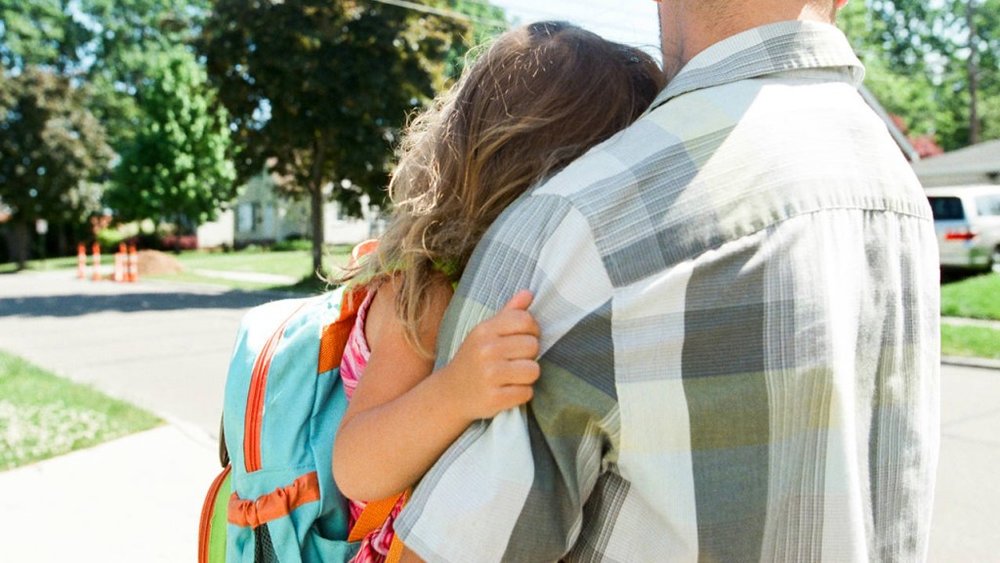Teaching Children to Manage Stress with 5 Helpful Tips
Adults aren’t the only ones who have to deal with stress, kids struggle with it too. They’re often affected by family problems, conflict with peers and an overwhelming number of commitments at school which can put them under tremendous stress.

When children are exposed to too many stressors, they can develop mental health issues like depression and anxiety later on in their lives
Lynn Lyons, the author of Anxious Kids, Anxious Parents: 7 Ways to Stop the Worry Cycle and Raise Courageous and Independent Children with anxiety says that a little bit of stress is part of normal life, and can actually be good for a child’s productivity and mental growth but when children are exposed to too many stressors, they can develop mental health issues like depression and anxiety later on in their lives.
For example, it’s normal for a child to feel stressed before a big exam day or if they’re transitioning to middle school, but parents need to play an active role in ensuring that their kids have the support they need to be able to manage stress.
Kids need to learn how to problem solve and when to say no to activities so that they don’t get overwhelmed by commitments. Children who don’t learn stress management at an early age turn to habits like overeating, drugs and alcohol to suppress their problems and emotions. This self-medication can have dangerous implications later on in their lives.
Here are a few simple tips to help your child cope with stress.
Prioritize Sleep
Not getting enough sleep is one of the biggest stress triggers that can leave your child feeling tired and grumpy all day, which ultimately reflects on their school performance.
If lack of sleep is the problem, this could be a red flag that your child has too much on their plate and need to unload their schedule. Removing all electronics from their room including computer, mobile phone and television can help them develop a healthy sleeping schedule.
Teaching Kids to Listen to Their Bodies
Our body has its own way of signaling stress, but children don’t necessarily understand how to listen to their bodies and know when it has had too much. Living a life with stress is like trying to drive a car with the gas and brake pressed at the same time.
You’re body’s engine revs and revs until it’s completely worn out. Encourage children to confide in you about their feelings so that you can catch any signs of stress or anxiety and give them advice to manage it effectively.
Reducing Stress In Your Own Life
You can’t be stressed yourself and try to teach your kid stress management. Stress is a contagious diseases that can easily infect others around you. When one person is stressed out in the house, it affects everyone’s mood.
Kids are quick to pick up on their environment so if their parents are constantly arguing or shouting at one another, they’re bound to be affected by it. Parents should lead by example and try to calm themselves down before educating their children about managing stress.

Kids are quick to pick up on their environment so if parents are constantly arguing or shouting at one another, they’re bound to be affected by it
A Great Start to the Day
A disorganized or chaotic environment at home can seriously impact your child’s mental wellbeing, especially in the mornings when there is a lot of screaming, shouting and rushing around to get to the school in time. Try to make your mornings less stressful to set a healthy tone for the day. This will significantly improve your child’s mood throughout the day.
Helping Them Deal With Mistakes
Most of the stress we face in our daily lives stems from the fear of unknown and making mistakes. Kids aren’t immune to this fear and it is the parents’ job to remind them that it’s okay to make mistakes. Parents often have high expectations from their children which often puts them under more pressure.
To prevent them from becoming stressed kids need to be reminded that they don’t necessarily need to know everything in life and while it’s important to make good decisions in life, it is equally important to learn to forgive yourself after making a mistake and try to make things better instead of taking it too hard upon yourself.
Making mistakes is part of the learning process, and when kids do make mistakes, it’s up to the parents to help them figure out the next step towards making amends and moving on.
